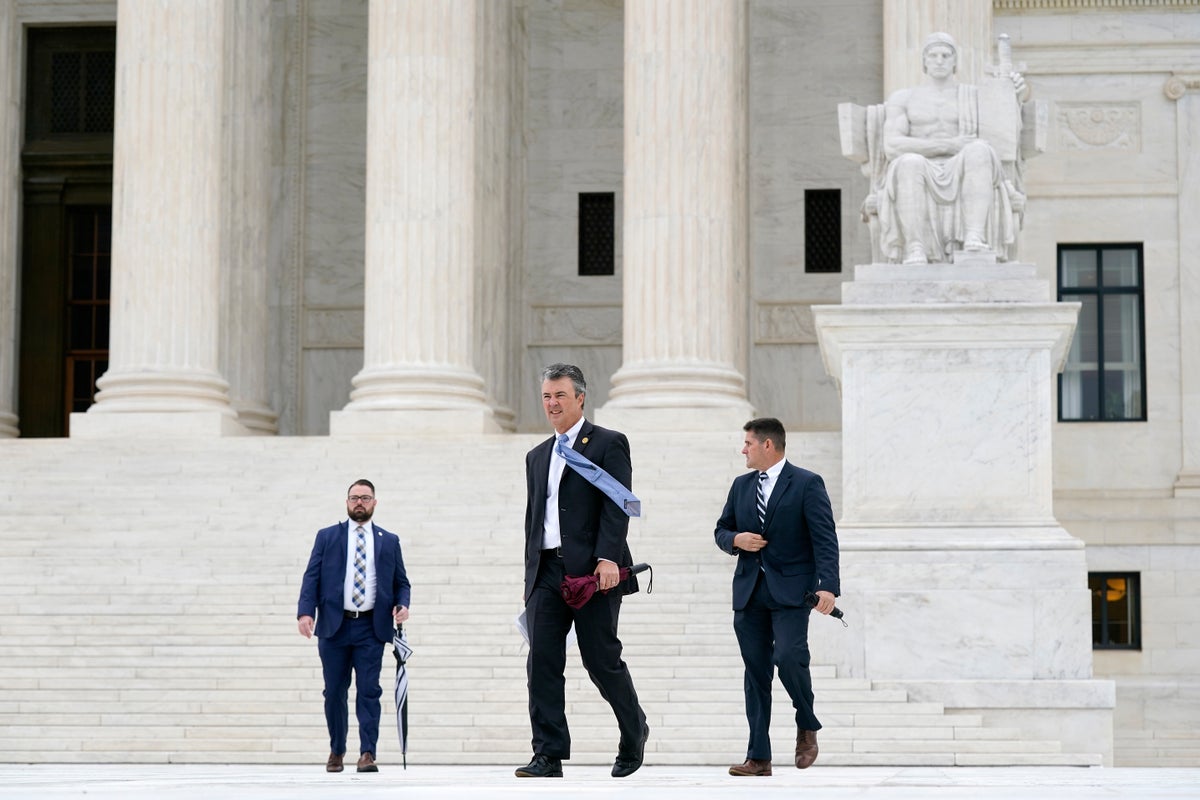
Several voting rights organisations, including the NAACP and American Civil Liberies Union, have asked the US Supreme Court to deny Alabama state lawmakers’ request to not redraw congressional lines that provide a fair opportunity for Black voters to elect a candidate of their choosing.
Earlier this year, the Supreme Court ruled that Alabama Republicans’ congressional map likely violated the Voting Rights Act by packing most of the state’s Black residents into one single district – despite making up 27 per cent of Alabama’s population.
In a second attempt to redraw lines, state lawmakers made one district containing more than 50 per cent of Black residents and another district with 39 per cent of Black residents and refused to re-draw them even after a lower court ordered it.
“What the Secretary cannot do is pretend this motion is something other than what it is: a request to defy this Court’s decision by implementing a ‘remedy’ that cures nothing and prevents Black voters from having an opportunity to elect candidates of their choice in a second congressional district,” the brief filed on Wednesday says.
It is the latest in a series of dramatic back-and-forth between Alabama lawmakers and voters as well as voting rights advocates after the court ruled Alabama’s congressional districts violated the Voting Rights Act.
Lower court judges told state lawmakers earlier this month that they failed to allow Black residents the opportunity to elect a candidate of their choice and ordered them to redraw lines that “includes either an additional majority-Black district, or an additional district in which Black voters otherwise have an opportunity to elect a representative of their choice.”
However, Alabama lawmakers disputed this and asked the Supreme Court to intervene by allowing them to defy the lower court’s order.
In the brief, voting rights advocates said Alabama, through its secretary of state, “unabashedly” defied the lower court and Supreme Court and did not provide good reason to not re-draw lines.
“The simple fact is that the Legislature failed even to try to comply with the district court’s order – and the Secretary now seeks to argue that it need not to have done so,” the brief says.
“The State’s response recalls instead our unfortunate history of State resisting civil rights remedies through “laws and practices which, though neutral on their face, serve to maintain the status quo.”







